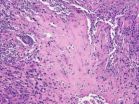Adult day care services provide much-needed break to family caregivers
2011-07-19
(Press-News.org) Adult day care services significantly reduce the stress levels of family caregivers of older adults with dementia, according to a team of Penn State and Virginia Tech researchers.
"Family members who care for dementia patients are susceptible to experiencing high levels of stress," said Steven Zarit, professor and head, department of human development and family studies, Penn State. "One way of alleviating that stress is through the use of an adult day care center, which allows them a predictable break from caregiving responsibilities."
Not only do caregivers benefit from using such services, but dementia patients also gain from the break. Zarit and his colleagues showed that dementia patients who attend adult day care centers have fewer behavior problems and sleep better at night.
"The changes we have seen are as large as you'd get with medication, but with no side effects," he said.
Zarit and his team evaluated the stress levels of 150 caregivers by using a 24-hour daily diary to obrain obtain baseline information prior to the use of an adult day care service. After the caregivers began the use of an adult daycare, the researchers gathered data at various times over a two-month period. The caregivers recorded entries in their diaries, both on days when their relatives went to an adult day care service and on days when their relatives stayed home. The researchers reported their results online in the Journals of Gerontology Series B: Psychological and Social Sciences.
"In the diaries, we asked the caregivers to discuss their moods and the moods of their relatives, how agitated or restless their relatives were, and how many sleep disturbances their relatives had, among other topics," said Zarit.
The team's results revealed that caregivers generally reported greater levels of stress exposure prior to the use of an adult day care service and on days when their relatives did not attend adult day care programs. The team also found that behavior problems and poor sleep were more likely to occur on days when dementia patients remained at home.
Zarit and his colleagues are now studying the possible physiological effects these services can have on family caregivers. They are using stress markers, such as the stress hormone cortisol, to examine the body's response to high-stress days when relatives with dementia stay home versus low-stress ones when relatives with dementia attend adult day care centers.
###
Other Penn State researchers involved in the study include Kyungmin Kim, graduate student, human development and family studies; Elia Femia, research associate, human development and family studies; David Almeida, professor of human development and family studies, and Peter Molenaar, professor of human development and psychology.
Also part of the study was Jyoti Savla, assistant professor of human development and gerontology, Virginia Tech.
National Institute of Mental Health supported this work.
ELSE PRESS RELEASES FROM THIS DATE:
EARTH: Great Lakes geologic sunken treasure
2011-07-19
Alexandria, VA - Shipwreck enthusiasts find a bounty of nautical relics preserved in the chilly depths of the Great Lakes. But only within the last decade have explorers and scientists begun to reveal the secrets of a much different - and much more ancient - sunken treasure in Lake Huron: sinkholes.
As EARTH explores in its August feature "Great Lakes Geologic Sunken Treasure," researchers have recently begun exploring several mysterious sinkholes in Lake Huron. These pockets of water teem with microbial life similar to that found around deep ocean hydrothermal vents ...
Esophageal cancer risk higher in medically treated GERD patients with fewest symptoms
2011-07-19
PITTSBURGH, July 18 – Medically treated patients with mild or no symptoms of gastroesophageal reflux disease (GERD) are at higher risk for developing esophageal cancer than those with severe GERD symptoms, according to a University of Pittsburgh study published in the current issue of Archives of Surgery.
Many patients who develop adenocarcinoma, a common form of esophageal cancer, are unaware that they have Barrett's esophagus – a change in the cells lining the esophagus often due to repeated stomach acid exposure. In some cases, Barrett's esophagus develops into esophageal ...
GOES-13 movie catches Tropical Storm Bret form and intensify
2011-07-19
VIDEO:
GOES-13 satellite imagery in 15 minute intervals from July 16 at 7:31 a.m. EDT until July 18 at 7:31 a.m. EDT shows Bret developing from a low pressure area in...
Click here for more information.
The GOES-13 satellite that monitors weather over the eastern U.S. recorded a movie of the birth and strengthening of the Atlantic Ocean season's second tropical storm. Tropical Storm Bret was born in the northwestern Bahamas and continues to strengthen.
The Geostationary ...
Steps needed to ensure that home medical devices are easy-to-use and caregivers are well-trained
2011-07-19
WASHINGTON – A new report from the National Research Council recommends steps the Food and Drug Administration and other agencies and professional associations can take to ensure that the medical devices and health information technology used in home health care are easy and safe for laypeople to use and that caregivers, whether formal or informal, are well-trained.
For many reasons -- including the rising cost of health care, the aging of the U.S. population, and patients' desire to remain in their homes -- health care is increasingly moving from formal medical facilities ...
Researchers identify how a gene linked to both Alzheimer's disease and type 2 diabetes works
2011-07-19
Researchers at Mount Sinai School of Medicine have identified how a gene for a protein that can cause Type 2 diabetes, also possibly kills nerve cells in the brain, thereby contributing to Alzheimer's disease.
The gene, called SorCS1, controls the generation of amyloid-beta (Abeta) in the brain. Abeta plays a key role in the development of Alzheimer's disease. The researchers previously linked SorCS1 to Alzheimer's disease and identified where the molecules lived in the cell, but not how they control Abeta. The new data were presented today at the Alzheimer's Association's ...
MIT: The tallest tree in the land
2011-07-19
CAMBRIDGE, Mass. -- The next time you're outdoors, see if you can spot the tallest tree. If you're in the desert Southwest, this may be an easy task — trees there are few and far between, and tend to hunch low to the ground to conserve resources. In the temperate Northeast, dense forests make the exercise a bit more difficult. And in the rainy Northwest, the towering stands of sequoias often reach higher than the eye can estimate.
Knowing how tall trees can grow in any given region can give ecologists a wealth of information, from the potential density of a forest and ...
Face value
2011-07-19
CAMBRIDGE, Mass. -- The looks of political candidates are a key factor influencing voters, a phenomenon identified by a number of scholars in recent years. Now, a new study by MIT political scientists adds to this body of research by detailing which types of citizens are most influenced by candidate appearances, and why: The tendency is most prevalent among low-information voters who watch a lot of television.
Using data from the 2006 U.S. Senate and governors' races, the study shows that for every 10-point increase in the advantage a candidate has when rated by voters ...
John Theurer Cancer Center researchers shared 14 leading edge studies at recent ASCO meeting
2011-07-19
HACKENSACK, N.J. (July 18, 2011) — Researchers from the John Theurer Cancer Center at Hackensack University Medical Center presented results from 14 cancer-related studies during the recently concluded American Society of Clinical Oncology (ASCO) Annual Meeting, which took place June 3 – 7, 2011 in Chicago. The studies examined new cancer treatments, ways to predict the best treatment outcomes, and patient quality of life issues.
"ASCO is a great venue for sharing best practices and learning about new treatment approaches – we are proud to help contribute by presenting ...
Click chemistry with copper -- a biocompatible version
2011-07-19
Biomolecular imaging can reveal a great deal of information about the inner workings of cells and one of the most attractive targets for imaging are glycans – sugars that are ubiquitous to living organisms and abundant on cell surfaces. Imaging a glycan requires that it be tagged or labeled. One of the best techniques for doing this is a technique called click chemistry. The original version of click chemistry could only be used on cells in vitro, not in living organisms, because the technique involved catalysis with copper, which is toxic at high micromolar concentrations. ...
Cancer stem cells recruit normal stem cells to fuel ovarian cancer, U-M study finds
2011-07-19
ANN ARBOR, Mich. — Researchers at the University of Michigan Comprehensive Cancer Center have found that a type of normal stem cell fuels ovarian cancer by encouraging cancer stem cells to grow.
Cancer stem cells are the small number of cells in a tumor that drive its growth and spread. Traditional cancer treatments do not kill these cells, which is why cancer treatments often fail.
In a study published online in the Journal of Clinical Investigation, researchers looked in ovarian tissue at the mesenchymal stem cells, which are normal cells found throughout the body. ...


